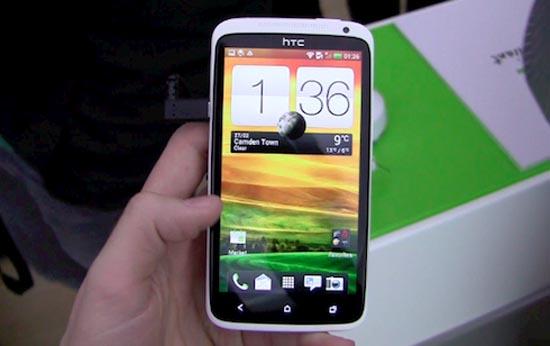
Sometime early yesterday, a report started making its rounds around the Internet. It was a pretty simple story, but the contents were touchy. Why? Because it talked about a high-end device that a lot of people are anticipating, and how it might be delayed due to a manufacturing hiccup. The sarcasm didn't start to flood Twitter and other social-centric sites for a little while afterwards, but as usual when it started it came full force. People criticizing other people; you know, the usual. While I tried to ignore all the negativity, I did start to think about the essence of the story, and whether or not there really is a story there at all.
We are knee-deep, maybe even waist-deep, in an industry that is built on secrets. It's the same for any major company, really, but we are exposed to those facts almost every single day. And it isn't just because tech journalists have to try and dig for it, either. The general consumer is introduced to that simple truth because there is always a conflicting report out there. There's always a news piece suggesting something else might be going on, even when there's no real "evidence." In this case, when we're talking about the HTC One X and One S here in the States, we don't have a due date to speak of. We're still waiting to hear from HTC when, exactly, the One X will be landing in stores. And from T-Mobile USA, we're still waiting to know when the One S will be making an appearance.
While we wait, we're now hearing rumors that the pair of devices could be delayed due to a manufacturing issue with the 28nm chipset inside the devices. The international versions are not hindered by this, because they don't use the same processor. But, here in the States, it is beginning to sound like we may have to wait a bit longer to get our new One Series fix.
But, there's the rub. How can we sit here and say that something without a release date is "delayed?" After all, you can't delay something that doesn't have a due date. There are plenty of people assuming as to when the devices might come to the market here on these shores, but nothing is definitive yet. In that respect, yes, I can easily see why people would be willing to raise their hands and say, "Whoa, they aren't delayed. They'll be out when they're out."
And that's very true. There's no doubt that the devices will "be out when they're out." I don't think anyone is arguing that point at all. The question here is: can a device without a launch date really be delayed? And, while I think you probably already have an answer in your head, let's try it from a different angle just for a moment.
Let's take a look at it from HTC's perspective. When the company started creating these devices, the One Series, and made the decision to go with two different processors in their devices for different regions, somewhere along the line someone started talking about a release date. A release window, even. There's no way that HTC executives and designers of the One Series (or any phone for that matter) haven't sat down more than a few times to talk about when the handsets will make it to market. And if the initial report regarding manufacturing issues is true, then there is a real possibility that those issues could have indeed delayed the launch of two devices. It doesn't matter that HTC hasn't officially announced anything yet.
If those executives and designers even kind of focused on a "sometime in May" release date, but this recent hiccup (if true) causes it to get pushed back until June, then that's a delay no matter how you look at it. No, it isn't a delay to the consumer because they had no idea that that date was even considered, but it is a delay.
So perhaps the question isn't as black-and-white as, "If the phone doesn't have an official launch date, can it really face a delay?" Maybe the question we should be asking is, "If a company doesn't announce a launch date, should people care about news covering a rumored delay?"
If you like the news, then I think the answer to that last question is yes. If you just want to buy the phone, and you don't necessarily care about the rest (unless it has something to do with features), then you probably shouldn't. It's all relative to what the person wants.